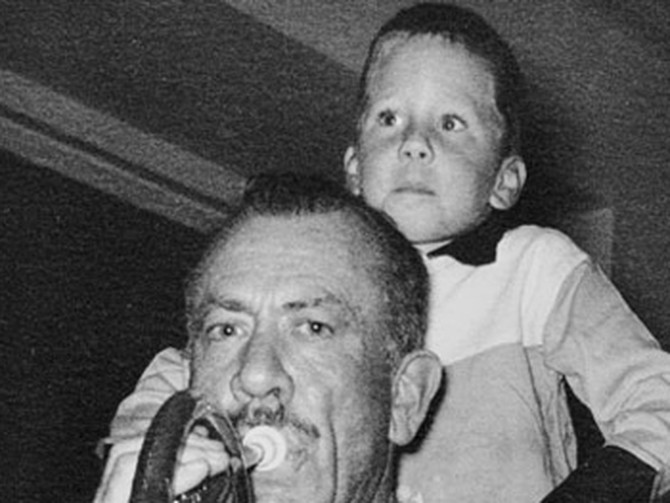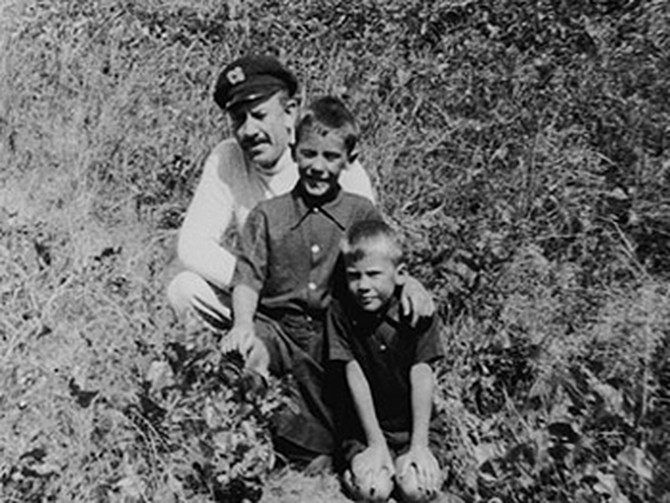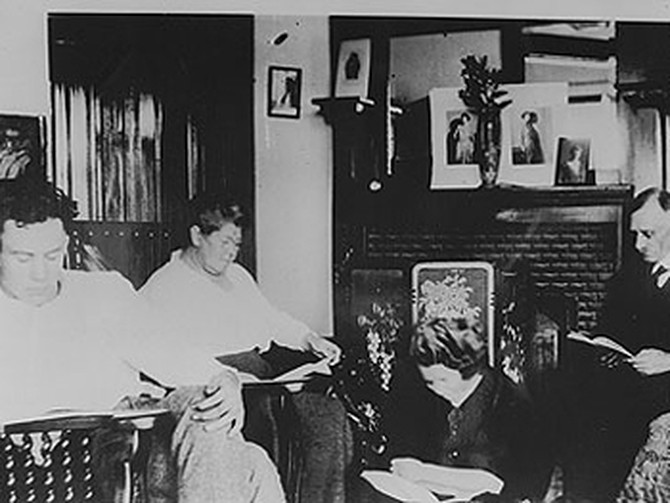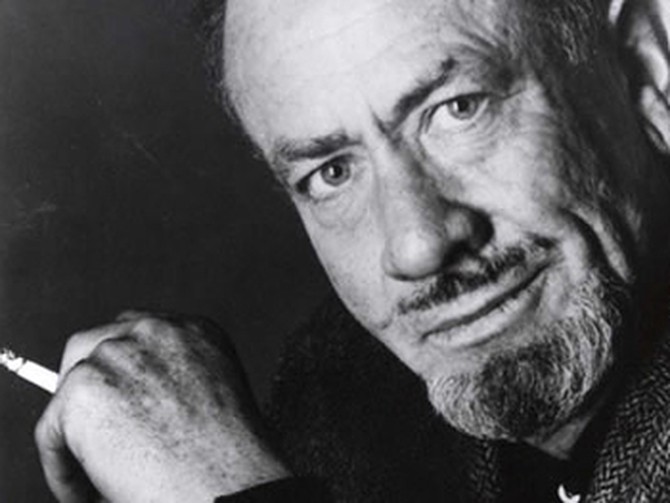Interview with Thom Steinbeck

Photo: Courtesy of The
Steinbeck House / Valley Guild
Why Steinbeck Wrote
My father was an addicted writer. He saw the world through his own verbalization of things. My father had to write. He wrote—as I say, he wrote for individuals. He'd write for Pat [Covici], or he'd write for us, or he'd write for somebody. And if that point got across, he was happy. But whether he sold or not never really occurred to him.
He took his responsibility as a writer very seriously and worked very, very hard at it. And he did draw out his plots and did draw out his ideas very finitely. He knew exactly where he was going with all of it.
He took his responsibility as a writer very seriously and worked very, very hard at it. And he did draw out his plots and did draw out his ideas very finitely. He knew exactly where he was going with all of it.

Photo:
Courtesy of The Steinbeck House / Valley Guild
His Father's Character
He was a very funny, gentle man. And shy. Which made him very adorable,
you know. He was just a terribly shy man, which is funny when you see a guy
6'4", you know? Broad-shouldered. Children had a complete fascination for my
father, which was really ridiculous because he was so tall and—but he treated
children like adults and talked to them that way. So every morning in the
summertime all the little neighborhood kids, you know, with the t-shirts that
never quite matched the shorts, little bellies hanging out, they'd come over and
they'd knock on the door and they'd say, 'Can John come out and play?' And my
father would come out and he'd play with them and take them on walks and give
them lectures on Latin humor.

Photo:
Courtesy of The Steinbeck House / Valley Guild
How Steinbeck Got His Writing Time
He'd invent strange things for us to do. Send us off on adventures like
Holy Grails to get rid of us so he could write during the day. He would create
this problem and he'd give it to us—write out a map and say, 'Go down there and
you'll find this.' He didn't know what we were going to find. But we thought it
was all real. So he'd get rid of us by sending us off on adventures. But he
always quit writing around 1:30, 2:00 p.m. in the afternoon and would donate the
rest of the day to us because he wrote from 5:00a.m. 'til 2:00p.m. And that was
pretty much it for his day. He knew that he couldn't write when he was tired so
he would get off and come out and play with us and take us on
adventures.

Photo: Courtesy of The Steinbeck House / Valley Guild
A Love of Learning
He liked learning. I think that's where I got it from. He was an addict.
His library was unbelievable. Books on every conceivable subject. Latin.
Medicine. Astronomy. Geology. Horticulture. I mean, everything. It was the most
amazing library I've ever seen. He was fascinated by all of it. He had the most
eclectic sense of information I've ever come across. He studied languages he had
no use for just for the joy of studying them, you know.

Photo: (c) William Ward Beecher, courtesy Globe Photos.
Steinbeck in Modern Times
I wish he'd been alive long enough for the computer age. He would have
loved that. He would have bypassed his publishers totally—you send him a buck,
he'll write you a story. He would have had his own website, you know, 'Let's get
around all these guys. Okay, who wants a story? Send my 5 bucks and I'll do you
a story.' He would have loved that.

Photo: Courtesy of The Steinbeck House / Valley Guild
To Be Remembered
As my father said, the worst that could possibly happen is to die and have
no one remember or care. And that usually happens to people who have not been
very involved with the world. Who don't care about the world. And my father
cared desperately. I think sometimes too much. Things broke his
heart.
Published 01/01/2006

